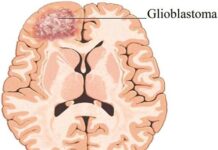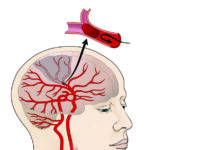According to new study published in the British Journal of Surgery, doctors can now diagnose appendicitis using low-does CT scans, decreasing the radiation exposure, which is of significant clinical importance especially in younger patients.
Appendicitis is known to be the cause of hospital admissions worldwide. It is difficult to diagnose appendicitis in some cases, however, such difficulties may delay or lead to unnecessary surgeries. Contrast-enhanced computed tomography (CT) scans are very useful and may aid doctors make the correct diagnosis.
Imaging has become standard in appendicitis diagnosis as it reduces both the negative appendicectomy rate and overall treatment costs. Although an ultrasound is often used in the paediatric population to avoid the dangers of radiation, a CT scan is the most accurate way to diagnose appendicitis in adults.
Researchers at Turku University, Finland, studied a total of 989 patients to the emergency room with suspected acute appendicitis. Some 53% percent underwent low-dose CT scans and 47% were diagnosed with standard-dose CT scans. Researchers found the overall accuracy of low-dose and standard-dose CT scans in identifying patients with and without acute appendicitis was 98% and 98.5% respectively. The accuracy for differentiating between uncomplicated and complicated acute appendicitis using the different types of CT scans was 90.3% and 87.6% respectively.
“The results of this study suggest that the diagnostic CT scan radiation dose can be significantly decreased without impairing diagnostic accuracy, said the paper’s lead author, Paulina Salminen. “These findings will hopefully encourage physicians to implement low-dose CT modalities at emergency departments for acute appendicitis imaging to avoid unnecessary radiation in this very large patient population.”



























